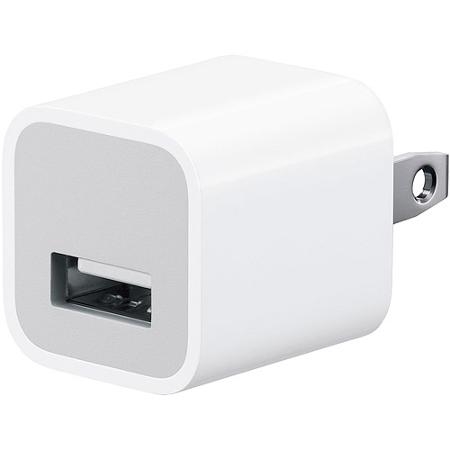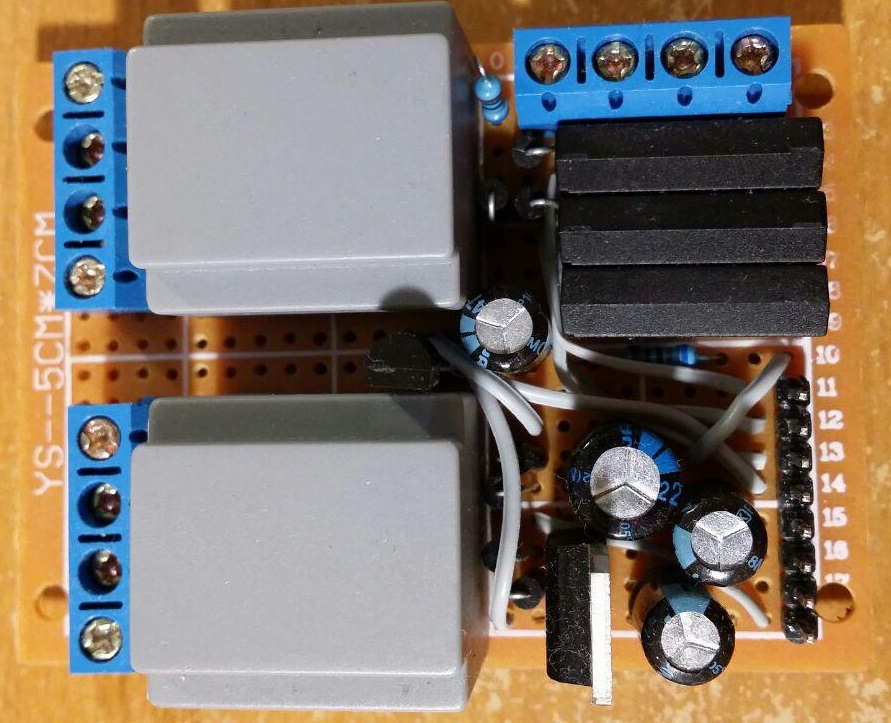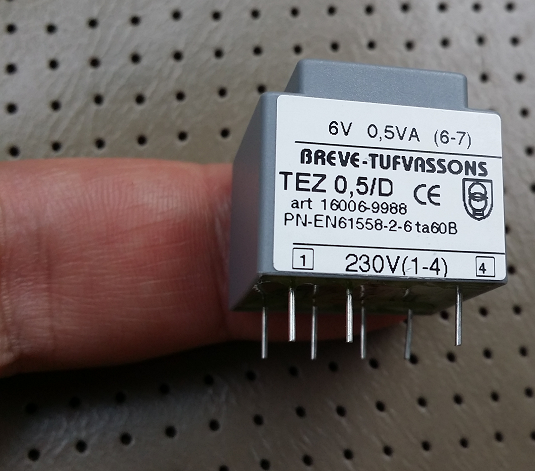Which are trustworthy brands for a simple USB wall charger?
-
I want a small USB wall charger of about this size:

However, I want to make sure it's not some no-name pos from China (i.e. no accountability) that might burst into flames at any time, especially if it's permanently plugged in and I'm not monitoring it. Are there any trustworthy brands, or is it a hopeless question because any brand could be counterfeited? Anyone have one or more links for a trustworthy unit?It's not an academic question. I have had various friends who have had things burst/flame/melt on them out of the blue after they've been plugged in for months or years. I suppose the part that's most likely to fail would be a capacitor (the usual suspect anyway), but I don't know that for sure.
-
A genuine Samsung/Iphone charger is probably the safest bet.
They don't want any new "Sorry, you can't bring that Samsung Galaxy Note 7 on this flight" stories in press.Or do you mean "safe" imported aliexpress stuff?
@hek said in Which are trustworthy brands for a simple USB wall charger?:
Or do you mean "safe" imported aliexpress stuff?
^ This. Is there such a thing?
-
If safety is on the first place you can make your own power supply using miniature transformers like this (lower half of PCB):

Such transformers are very small for low-power nodes:

UPD: link to the topic: https://forum.mysensors.org/topic/6259/encapsulated-transformers-instead-of-traditional-switching-power-supplies-like-hi-link
-
Maybe I worry too much. Provided that as a USB charger's plastic housing isn't combustible, then any failure would be "contained"?
-
Maybe I worry too much. Provided that as a USB charger's plastic housing isn't combustible, then any failure would be "contained"?
-
Maybe I worry too much. Provided that as a USB charger's plastic housing isn't combustible, then any failure would be "contained"?
-
Yeah, your example is the sort of thing I want to avoid. From what I've read, the electrolyte in capacitors can boil off over time, creating a kind of time bomb.
-
Yeah, your example is the sort of thing I want to avoid. From what I've read, the electrolyte in capacitors can boil off over time, creating a kind of time bomb.
@NeverDie - I have also posted pictures in this forum and other forum about personal issues with "genuine" (fake!) iphone/samsung charger. Just a search on ali/ebay makes it impossible with that amount of results to know which one is good vs bad... i guess it some way you pay more for good.
My guess is that we are going to see more fires... I watched a morningshow here in Sweden some time ago and it was considered safe so far with the chargers (13 fires / year) verses stove fires (1500+/year) but the last linked charger (samsung) was bought at a market here in sweden in a nice packaging sold as a genuine... it was not so i guess the market is getting quite flooded with fake ones.
My second guess is as the charger is safer using it as just a charger than putting a unknown DIY load as well. Might be the work fine charging phones but what happens when you add to much load to them?
-
As usual it is always the problem of attaching to mains a supposedly certified shitty power adapter or make your own high quality and safe adapter but not certified. Probably phone chargers are just not designed to be used 24/7
@gohan said in Which are trustworthy brands for a simple USB wall charger?:
Probably phone chargers are just not designed to be used 24/7
No, of course they are. Good ones anyway.
-
@sundberg84 said in Which are trustworthy brands for a simple USB wall charger?:
it was considered safe so far with the chargers (13 fires / year) verses stove fires (1500+/year)
I suppose one could monitor the temperature of the charger since, after all, it would be used to power a sensor node anyway. Maybe that would give some advance warning if things are heading badly before it goes catastrophic?
-
Seems like this is offtopic, but there are good meanwell power supplies designed to run 24x7, like this:
http://www.meanwell.com/webapp/product/search.aspx?prod=DR-15 (MTBF 1.1M hours)
Or even something like this:
http://www.meanwell.com/webapp/product/search.aspx?prod=PM-05 (MTBF 1.5M hours) and so onI used long time this NFM-05-5 power supplies, very good, no problems at all:
http://www.meanwell.com/webapp/product/search.aspx?prod=NFM-05 -
Seems like this is offtopic, but there are good meanwell power supplies designed to run 24x7, like this:
http://www.meanwell.com/webapp/product/search.aspx?prod=DR-15 (MTBF 1.1M hours)
Or even something like this:
http://www.meanwell.com/webapp/product/search.aspx?prod=PM-05 (MTBF 1.5M hours) and so onI used long time this NFM-05-5 power supplies, very good, no problems at all:
http://www.meanwell.com/webapp/product/search.aspx?prod=NFM-05 -
@sundberg84 said in Which are trustworthy brands for a simple USB wall charger?:
it was considered safe so far with the chargers (13 fires / year) verses stove fires (1500+/year)
I suppose one could monitor the temperature of the charger since, after all, it would be used to power a sensor node anyway. Maybe that would give some advance warning if things are heading badly before it goes catastrophic?
one could monitor the temperature
@NeverDie - this is the exact approach I have in my In wall AC/DC nodes.
https://www.openhardware.io/view/13/In-Wall-ACDC-Pcb-for-MySensors -
If you've guys have never seen any of the videos from:
https://www.youtube.com/user/bigclivedotcom/videos
many of them are quite entertaining. I think he may have been a Scottish electrician or something. He routinely buys things from the pound shop, tears them down, and often shows them to be "deathtraps," especially for mains connected devices. -
Noticing now that at least some of them claim to offer various protections:

https://www.aliexpress.com/item/LED-Display-3-USB-Charger-ROCK-Universal-Mobile-Phone-USB-Charger-Fast-Charging-Wall-Charger-For/32832813133.htmlSo, what would be the cheapest one but offering good protections?
-
I guess the way to do it would be if someone credible like Dave Jones did a tear down and vetted a particular USB charger. Then get that make and model. Ignoring counterfeits, maybe then it would be deem-able as "safe."

